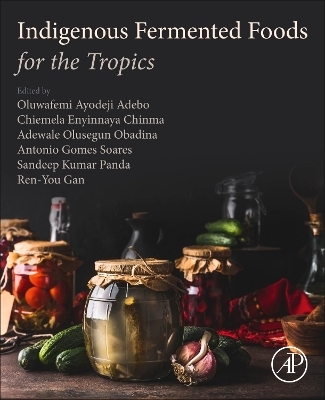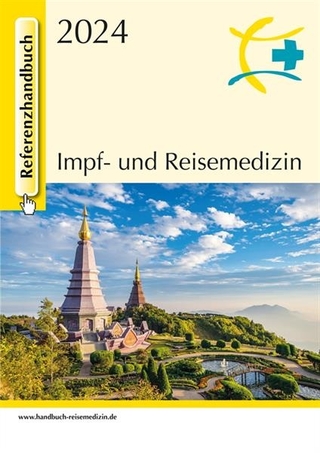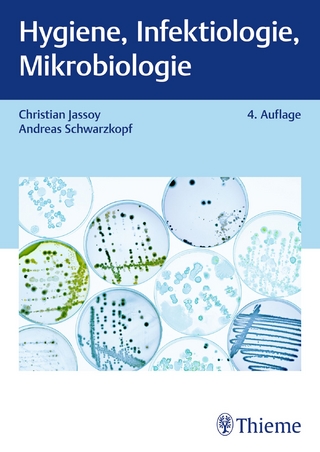
Indigenous Fermented Foods for the Tropics
Academic Press Inc (Verlag)
978-0-323-98341-9 (ISBN)
Prof. Oluwafemi Adebo is with the Department of Biotechnology and Food Technology at the University of Johannesburg (UJ), South Africa. He leads the Food Innovation Research Group and involved with research geared towards the improvement of various traditional food processes, enhancing food health promoting constituents, food product development and value addition to underutilized food sources using conventional, novel and innovative approaches. He has contributed to over 100 journal articles and book chapters, several invited talks and keynote presentations and has a provisionally approved patent. He has received different grants and won prestigious awards including the 2019 Institute of Food Technologists Emerging Leader Award, 2021 National Research Foundation Emerging Researcher of the Year, 2021 UJ’s Vice Chancellor’s Distinguished Award as an Outstanding Young Researcher and UJ's Faculty of Science Top Research Award (Lecturer/Senior Lecturer Category) twice. He is a Young Affiliate of The World Academy of Sciences and a regular volunteer for activities that promote food science and technology. Chiemela Enyinnaya Chinma is a Professor of Food Science and Technology at the Federal University of Technology Minna (FUT Minna), Nigeria, and a Visiting Professor at the Department of Biotechnology and Food Technology, University of Johannesburg, South Africa. He was a Postdoctoral Research Fellow at UPM-BERNAS Research Laboratory, Faculty of Food Science and Technology, Universiti Putra Malaysia. He has served as the Deputy Director of Research, Innovation and Development, Deputy Director of Academic Planning and the Academic Coordinator of the World Bank facilitated Africa Centre of Excellence for Mycotoxin and Food Safety, FUT Minna, Nigeria. He is the Head of Department, Food Science and Technology and the Chairman, University Policies and Manuals Advisory Committee, FUT Minna, Nigeria. He leads the Food Product Development Research Group at FUT Minna, Nigeria with research interest in improving the functionality of underutilized grains using conventional and innovative food processing methods. He has won several research grants and received academic awards. Adewale Olusegun Obadina is a Professor of Food Safety and Biotechnology at the Federal University of Agriculture, Abeokuta, Nigeria, and a Visiting Professor, Department of Biotechnology and Food Technology, University of Johannesburg, South Africa. He has served as the Director of Biotechnology Centre and Head of Department, Food Science and Technology, Federal University of Agriculture, Abeokuta. He is member of Board of Director; International Union of Food Science and Technology (IUFoST); African Continental Association of Food Protection (ACAFP) and member of AU-IBAR Expert on Food Hygiene. He was a grantee and Research Associateship Fellow of The World Academy of Sciences (TWAS) with research interest in improving the quality and safety of processed foods. He is an active member of: Food Science Advisory Council, Human Health Organization (HHO); Safety Enhancement of Edible Products, Legislation, Analysis and Management (SELAMAT); Mytox-South; Global Harmonization Initiative (GHI) and member of the Nigeria National Antimicrobial Resistance – Technical Working Group (AMR-TWG). He has played an integral role in various collaborative projects sponsored by DFID, EU, World Bank, Africa-Brazil Innovative Marketplace, M-BoSs, The World Academy of Science and USAID. Dr. Antonio Gomes Soares has a background in Food Science and Technology and Postharvest Technology research. He is currently a scientific researcher at Brazilian Agricultural Research Corporation – EMBRAPA Food Technology in Rio de Janeiro, Brazil. He is also a Scientific Responsible Researcher for the Postharvest Technology Scientific Area. He was a member of 25 research projects between 1985 and 2020, which coordinated 13 of them. His main research activities are associated with Food Chemistry, Food Science, Food Quality Control, Postharvest Technology, Edible Coatings, Innovative Packaging Materials for fruit and vegetables (Mango, papaya, strawberry, heart of palm, persimmon, minimally processed vegetables, cassava, tomatoes, ginger, green coconut). Dr. Sandeep Kumar Panda has been trained in ICAR, CSIR, and IIT laboratories and the University of Johannesburg during his Doctoral and Post-Doctoral research career. His current research focuses on microbial technology for underutilized fruits and vegetables for the development of functional foods and beverages. Dr. Panda’s research work is directed towards food security challenges and poverty amongst communities of Southeast Asia and Africa. His team works in interlinking social engineering to fermentation technology so that the knowledge and technology can be harnessed at the community level for the preservation and bioprocessing of perishable fruits and vegetables. Effective planning and training on fermentation technology at the community level for generating revenue in different tribal pockets of India as well as the globe, has been one of Dr. Panda’s important research agendas. Dr. Ren-You Gan is a Chief Scientist in the Research Center for Plants and Human Health, Institute of Urban Agriculture, Chinese Academy of Agricultural Sciences, China. He received his PhD degree from The University of Hong Kong, and was previously a tenure-track Assistant Professor at Shanghai Jiao Tong University, China. His main research interest is functional plants/foods and human health, such as the health benefits of traditionally fermented foods in China. He has published more than 100 SCIE-indexed papers, including 70 first/corresponding-author papers and 12 ESI highly-cited papers, with total citations more than 4800 times and H-index of 32 based on Google Scholar statistics.
Section 1: Overview, Production and Composition (Health and Nutritional), Microbiota of Fermented Foods
1 In insight into indigenous fermented foods for the tropics 2 African Cereal-Based Fermented Products 3 Asian Cereal-Based Fermented Products 4 South American Cereal-Based Fermented Products 5 African Legume, Pulse and Oil Seeds-Based Fermented Products 6 Asian Fermented Legume, Pulse and Oil Seeds-Based Products 7 South American Fermented Legume, Pulse and Oil Seeds-Based Products 8 African Fermented Fish and Meat-Based Products 9 Asian Fermented Fish and Meat-Based Products 10 South American Fermented Fish and Meat-Based Products 11 African Fermented Dairy-Based Products 12 Asian Fermented Dairy-Based Products 13 South American Fermented Dairy-Based Products 14 African Fermented Vegetable and Fruit-Based Products 15 South American Fermented Fruit-Based Products 16 African Fermented Root and Tuber-Based Products 17 Asian Fermented Root and Tuber-Based Products 18 South American Fermented Root and Tuber-Based Products 19 Fermented Foods and Gut Microbiome: A Focus on African Indigenous Fermented Foods 20 Fermented Foods and Immunological Effects in Human and Animal Models
Section 2: Innovative Approaches for Studying and Improving the Composition of Fermented Foods 21 Metagenomics for the Identification and Characterization of Microorganisms in Fermented Foods 22 Metabolomics and its Application in Fermented Foods 23 Proteomics and Transcriptomics and their Application in Fermented Foods 24 Data-driven Innovation and 4th Industrial Revolution Concepts for Development and Improvement of Fermented Foods 25 Starter Cultures: An Insight into Specific Application in Flavoring and Health Promotion 26 Bioactive Constituents and Potential Health Benefits of Fermented Seed Products 27 Equipment and Machinery for Improving the Fermentation Process of Indigenous Foods 28 Novel Food Processing Techniques and Application for Fermented Foods 29 Sensory Perspectives into Indigenous Fermented Foods in the Tropics: Challenges and Opportunities
Section 3: Safety and Quality of Fermented Foods 30 Occurrence of Mycotoxins in Fermented Tropical Foods 31 Presence of Pathogenic Microorganisms in Fermented Foods 32 Occurrence of Biogenic Amines in Fermented Foods 33 Contamination of Fermented Foods with Heavy Metals
Section 4: Packaging and Marketing of Indigenous Fermented Foods 34 Packaging and Packaging Technology for Indigenous Fermented Foods in the Tropics: Challenges and Opportunities 35 Marketing Practices to Promote Indigenous Fermented Alcoholic Beverages in the Tropics
Section 5: Future Prospects
36 Future Prospects for Indigenous Fermented Foods from the Tropics
| Erscheinungsdatum | 30.01.2023 |
|---|---|
| Verlagsort | Oxford |
| Sprache | englisch |
| Maße | 216 x 276 mm |
| Gewicht | 1740 g |
| Themenwelt | Medizin / Pharmazie ► Medizinische Fachgebiete ► Mikrobiologie / Infektologie / Reisemedizin |
| Naturwissenschaften ► Biologie ► Mikrobiologie / Immunologie | |
| Technik ► Lebensmitteltechnologie | |
| ISBN-10 | 0-323-98341-3 / 0323983413 |
| ISBN-13 | 978-0-323-98341-9 / 9780323983419 |
| Zustand | Neuware |
| Haben Sie eine Frage zum Produkt? |
aus dem Bereich


